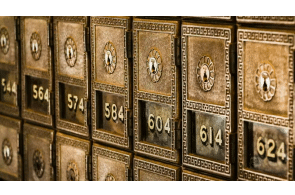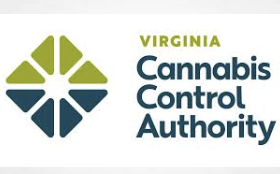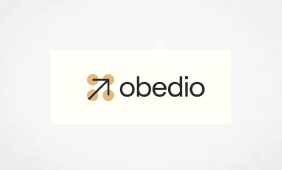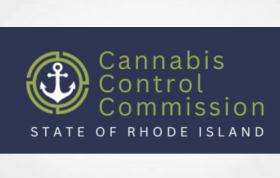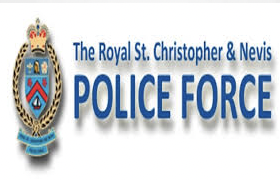Banking services are one of the cornerstones of starting any successful business, but the cannabis industry has ben unfairly shut out for quite some time. While the industry continues to grow as more states create adult-use or medical programs, cannabis-based business owners and entrepreneurs continue to struggle with access to basic services like business checking accounts, forcing cash-only operations for many.
There are numerous cannabis banking myths about why financial institutions are so hesitant to work with this industry. One of the most common is the assertion that approximately 700 banks are willing to buck the trend. And while there certainly are banks willing to work with the cannabis industry, the real number is nowhere quite as high.
Why won’t banks work with the cannabis industry?
One of the biggest fallacies regarding the cannabis industry and access to banking solutions is the idea that financial institutions don’t want to run afoul of the federal government’s drug laws. By doing business with a company that deals with a Schedule I substance, it’s believed that banks stay away from such a “high risk” industry.
According to the U.S. Controlled Substances Act (CSA), cannabis is listed as an illegal Schedule I substance, meaning it has “no currently accepted medical use in the United States, a lack of accepted safety for use under medical supervision, and a high potential for abuse.” And while that assertion has been proven false, most people believe that designation is why banks won’t work with the cannabis industry.
In reality, the overwhelming majority of banks in America refuse to work with the cannabis industry because of nearly a century’s worth of anti-cannabis propaganda. After years and years of “reefer madness” and claims that cannabis is a “gateway drug,” bankers of all stripes chose to stay away from the industry in its entirety.
Though banks often claim wanting to avoid possible retaliation from the federal government, no bank that works with the cannabis industry has ever suffered legal ramifications for doing so. In fact, the U.S. Department of Justice has said in the past that it does not plan to prosecute businesses or individuals that operate in compliance with state laws. Still, the fact that cannabis remains illegal at the federal level, for many, is just a way to rationalize their decision to not back the cannabis industry as a whole.
And even though most of the fear purportedly stems from potential backlash by the federal government, the decision to allow banks to service the cannabis industry doesn’t lie with Congress—it lies with the banking system itself. There’s no reason why bankers should wait around until cannabis is legalized at the federal level — especially since federal agencies have already established regulatory guidance and set precedents in terms of monitoring and enforcement.
Are there actually 700 banks willing to work with the cannabis industry?
Another wrongfully cited talking point is the suggestion that there are upward of 700 banks willing to work with the cannabis industry. While that number would be nice, it’s just not accurate.
While the number sounds great, in reality, it reflects the misrepresentation of a figure cited in a September 2017 memo from the U.S. Treasury’s Financial Crimes Enforcement Network (FinCEN). In that memo, it was reported that more than 700 banks filed marijuana-related suspicious activity reports (SARs). Required under the Bank Secrecy Act (BSA), SARs are often filed when dealing with businesses that don’t align with the agency’s regulations.
While that initial number of 700 reports was accurate, nearly half of those were “marijuana-terminated” SARs, which means that the bank found a cannabis-related business and subsequently closed the account. Others stemmed from similar situations, like when a bank finds out that a commercial real estate portfolio includes a lease to a licensed dispensary.
For example, an ancillary business that never actually touches the plant but has some tangential connection to the cannabis industry may cause a bank to file an SAR out of extreme caution. While that’s within their rights, it doesn’t mean that the bank itself is actively catering to the cannabis industry. This happens more often than not, resulting in rampant misinformation and an inflated number of cannabis-friendly banks, even though the number is significantly lower than what’s being reported.
The actual number of American financial institutions that are transparently, sustainably, and successfully providing banking services to cannabis-related businesses is much lower. In fact, there are only a few dozen institutions that serve THC licensees while another group caters “quiet” services to an additional, smaller group of customers.
What’s the real number of banks working with the cannabis industry?
When looking at the totality of the American banking system, you quickly realize just how underserviced the growing cannabis industry really is. According to Fincann’s Cannabis Industry Bank Counter, which publishes real-time market data, there are 207 cannabis industry-friendly institutions across all sectors as of April 2021. That figure amounts to under 4% of the country’s more than 5,300 local and national banks.
An even closer look at those industry-friendly banks shows that there are 112 cannabis investment fund-friendly banks, 107 cannabis-related ancillary-friendly banks, 98 hemp-friendly banks, 87 CBD-friendly banks and 84 THC licensee-friendly banks.
The Fincann Cannabis Industry Bank Counter pulls its data from real-time market intelligence, collected in collaboration with industry colleagues, and banks in our Cannabis Banking Financial Network™. Drawing on that data, we are confident that our data can be a reliable tool to help make actionable decisions and best measure the current state of cannabis-friendly banking.
If there are roughly 200 banks serving the cannabis industry, why is it so difficult to find one?
Though there may be services available in your area, it’s difficult to find those programs on your own. First and foremost, few, if any, of these banks openly advertise that they are willing to work with the cannabis industry. Aside from that, there are several other reasons why a bank won’t take on your account.
For example, the bank might:
- Decline to take in new businesses
- Require some percentage of growth
- Come with account balance requirements
- Cap the number of cannabis businesses they serve at any given time
May have lengthy backlogs of other applicants ahead of you
Furthermore, the branch you visit may not have all the information. Most cannabis-related programs are kept so quiet, that the branch’s employees may not know it exists. In one instance, a major national banking company started accepting businesses that sold topical CBD products, but never told their branches. Since Fincann connects with senior staff, we were able to get the branch manager in touch with someone at the corporate level that was handling the cannabis program to approve the account.
How banks can serve the cannabis industry
Companies that deal with cannabis—and cannabis-related goods and services—have the same banking needs as any other business type. Our firm at Fincann is here to serve as an intermediary between the cannabis industry and banking institutions. Through our consulting services, we can help banks learn how they can best serve this burgeoning new American industry.
Through our growing consortium of cannabis-friendly banks, we work closely with many such institutions. By utilizing Fincann’s Cannabis Banking Financial Network™, banks can help businesses access the right commercial banking services to fit their needs, such as:
- Business checking services
- Cash depository
- Compliant merchant processing
- Payment processing clearance accounts
- Access to working capital
- Asset-based lending
Furthermore, our consulting services exist to help banking organizations determine whether extending their services to the cannabis, CBD, or hemp industry is right for them. Our FI and Fintech consultation services include:
- Education on the potential risks and opportunities servicing the cannabis, CBD, and hemp industries
- Finding which sectors of those respective industries exist within a bank’s operating area
- Provide access to successful compliance, reporting, and transaction monitoring services
- Instructions on how to create anti-money laundering (AML) and know your customer (KYC) protocols
Offer referrals to industry-friendly vendors and vetted industry clients
If your financial institution is looking to get into the cannabis industry, our team of experts can guide you through the process. You can learn more about the education and training we provide by scheduling a free consultation with a Fincann representative.
